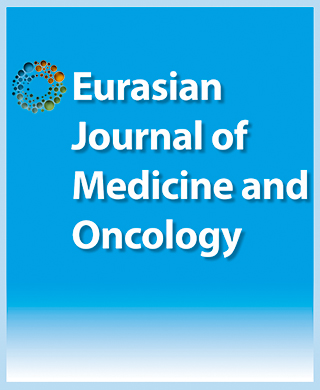

Assessment of the Relationship Between Serum Vitamin D Levels and Obesity in the Reproductive-Aged Women
Umut Gorkem1, Zeynep Ozturk Inal2, Hasan Ali Inal21Department of Reproductive Endocrinology, Hitit University Faculty of Medicine, Corum, Turkey, 2Department of Reproductive Endocrinology, Konya Education and Research Hospital, Konya, Turkey,
Objectives: The aim of this study was to examine the association between Vitamin D levels and body mass index (BMI)
as an adiposity measure in the reproductive-aged women.
Methods: A total of 171 women were included in this comparative cross-sectional study. The subjects were classified
into three groups according their BMIs: Group I; non-obese=80 (BMI<25.0 kg/m2), Group II; overweight=54
(25.0
Cite This Article
Gorkem U, Ozturk Inal Z, Inal H. Assessment of the Relationship Between Serum Vitamin D Levels and Obesity in the Reproductive-Aged Women. EJMO. 2019; 3(1): 43-48
Corresponding Author: Hasan Ali Inal



